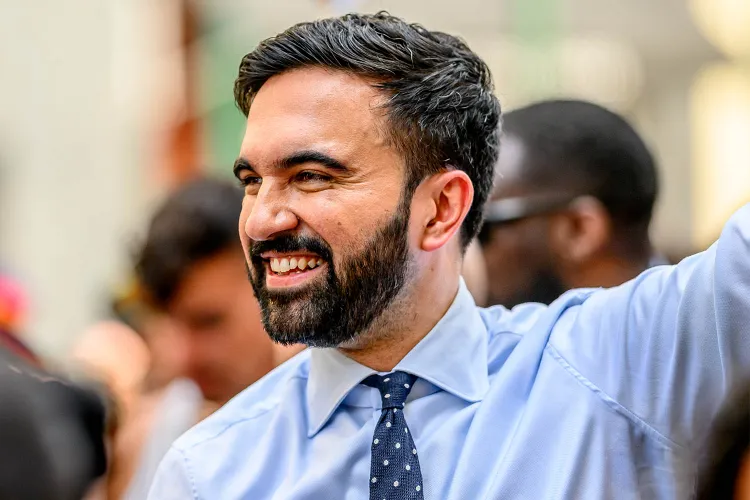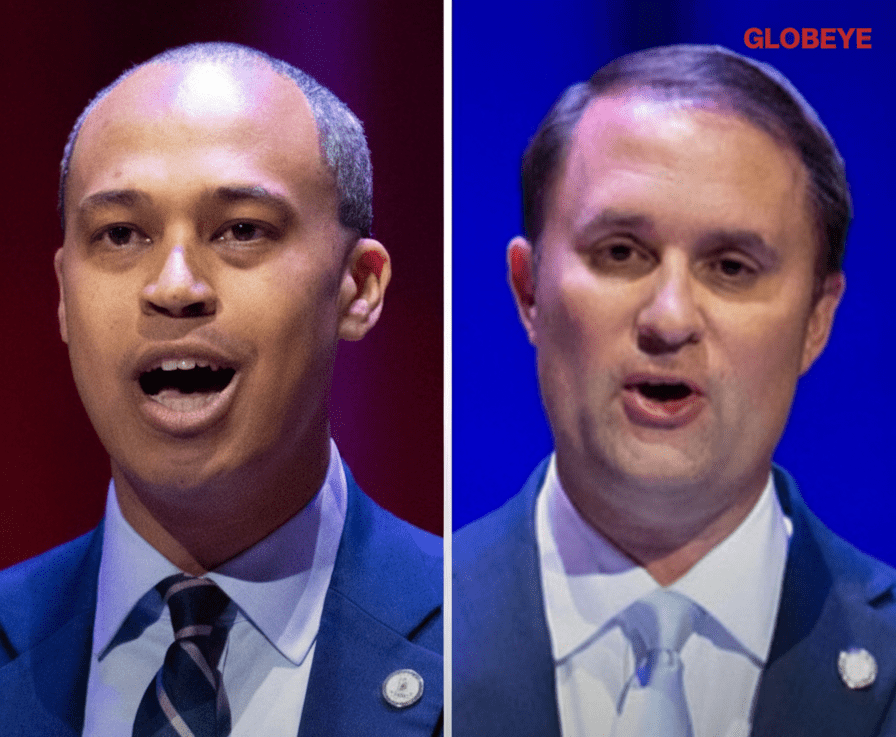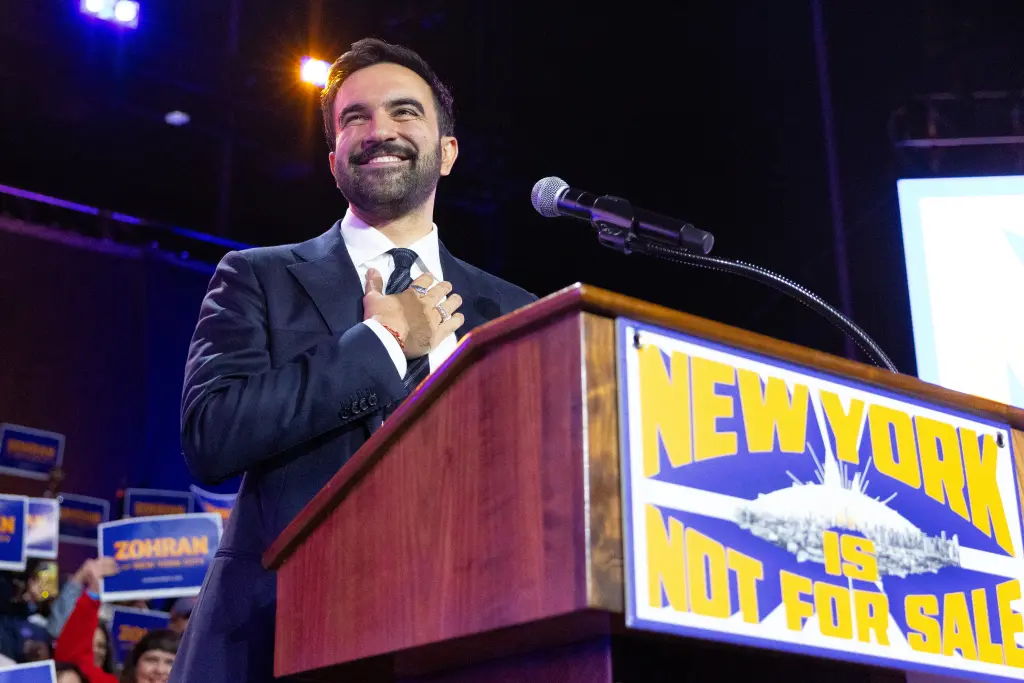At Just 34, Zohran Mamdani Makes History by Defeating Andrew Cuomo and Becoming New York City’s First Muslim Mayor in a Landmark Election That Redefines America’s Political Future
The people of New York City delivered a message Tuesday night: they are hungry for change. With his victory in the 2025 mayoral race, Zohran Mamdani, a 34-year-old state assemblyman and self-described democratic socialist, has catapulted from relative obscurity to the city’s highest office. In doing so, he becomes New York City’s first Muslim mayor — and signals a dramatic shift in a city that long has been a bell wether of American politics.
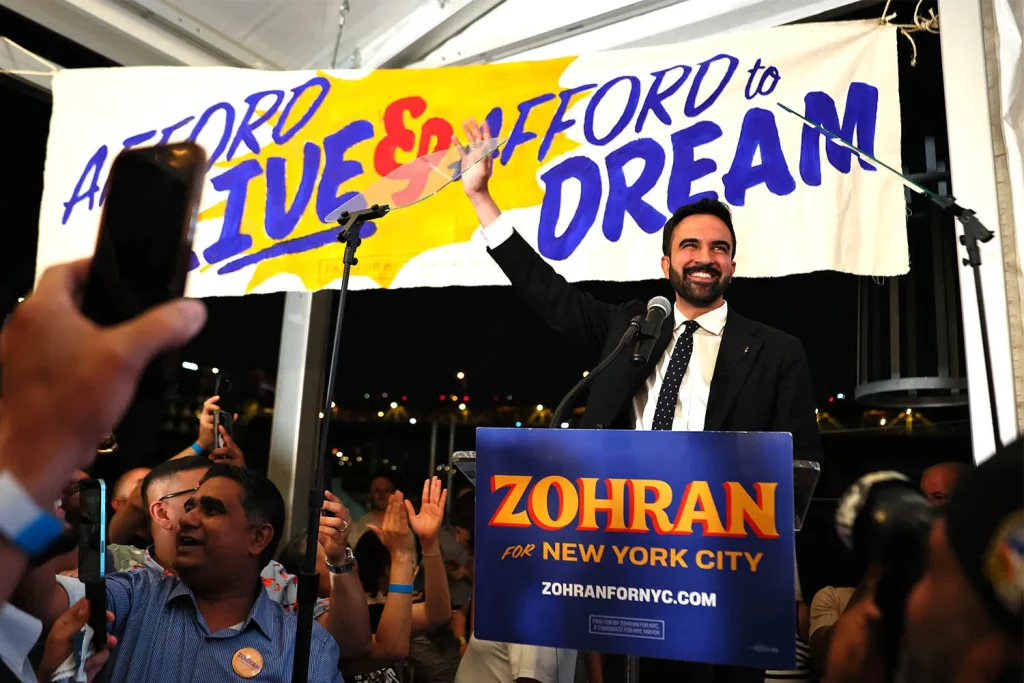
Mamdani’s win is not just a personal triumph. It is a landmark moment in the ever-evolving story of New York, one that speaks to generational change, growing frustration with the status quo, and a new coalition of voters determined to rewrite the rules. He emerged victorious over a field that included Andrew Cuomo, the former governor who ran as an independent after losing the Democratic primary, as well as Republican Curtis Sliwa. The Associated Press projected the win shortly after polls closed.
From early in the campaign, Mamdani positioned himself as the fresh voice New Yorkers had been waiting for. His platform focused squarely on cost-of-living concerns: housing, rents, public transit, and the widening gap between the very rich and everyone else. He promised a rent freeze on rent-stabilized units, free city buses, building 200,000 units of affordable housing, and raising the minimum wage to $30 an hour by 2030.
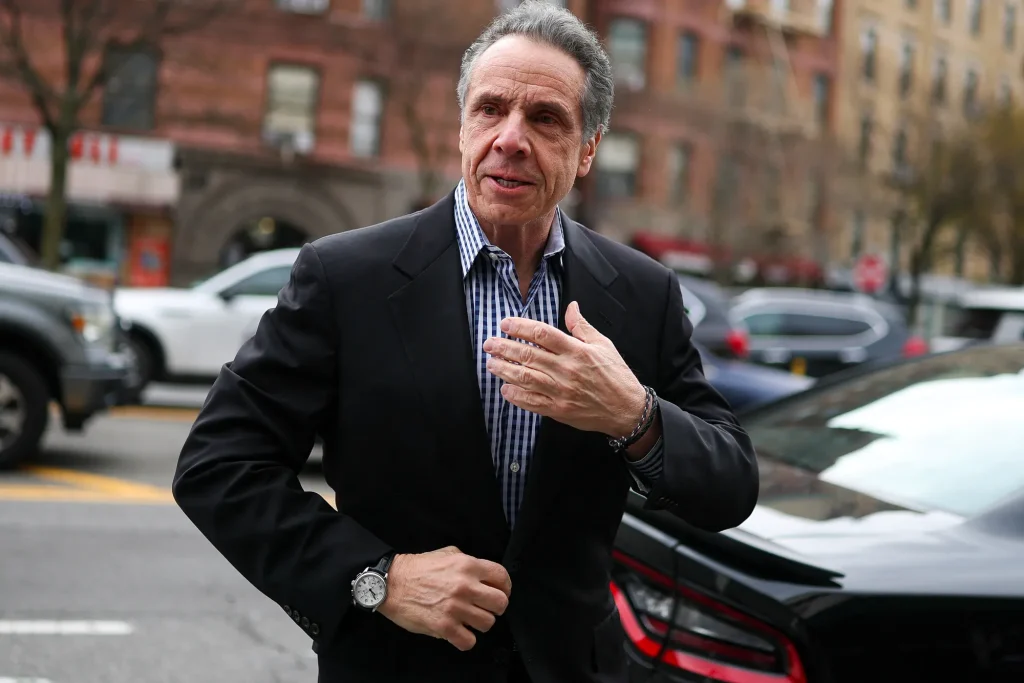
Although he initially trailed in the polls, he gained momentum steadily. In the Democratic primary, he defeated Cuomo by approximately 12 percentage points in the ranked-choice count. By late October, polling showed Mamdani with leads of 16 to 20 points over Cuomo and other opponents.
What changed? For many voters in Queens, the Bronx, Brooklyn, and beyond, Mamdani offered more than slogans. He offered authenticity. He positioned himself as a working-class candidate with an authentic story: born in Kampala, Uganda, raised partly in South Africa, he and his family arrived in New York when he was seven.
He built a coalition of young voters, immigrant communities, working-class neighborhoods, and progressive activists, including major endorsements from icons like Alexandria Ocasio-Cortez and Bernie Sanders. Those endorsements helped boost his grassroots campaign, which relied heavily on door-to-door canvassing, small-dollar donations, and social media organizing instead of big-money donors.
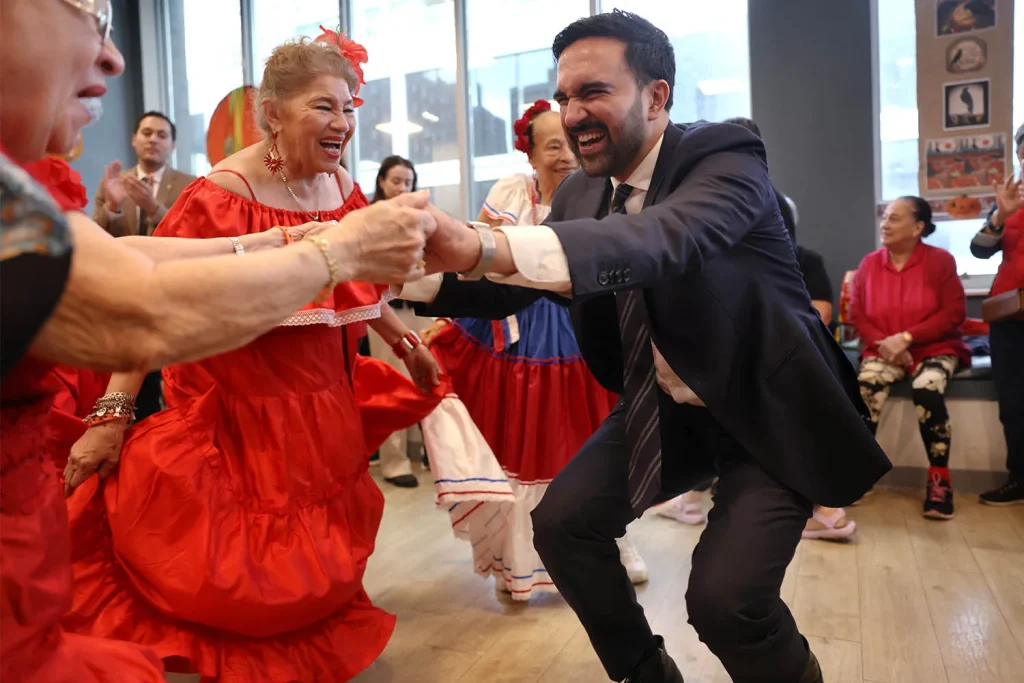
For decades, the race for mayor in New York has been fought among seasoned politicians, dynasties, and political machines. Cuomo, once a dominant voice in the state, represented that establishment side of politics. Mamdani’s win suggests significant change: a city ready to embrace progressive experiments, younger leadership, and a bold agenda for transformation.
Yet the path ahead is not without challenge. The same voters who turned out to deliver Mamdani’s victory also have deep anxieties about how these ambitions will translate into policy and practical governance. Some critics raised concerns about the feasibility of items like fare-free transit and a steep minimum wage increase in a city with longstanding structural issues.
Moreover, Mamdani must now govern. Winning votes is one thing; delivering results is another. He will take office at a moment when New York City faces stiff headwinds: rising costs, a tight housing market, lingering crime and public safety challenges, and deep inequalities. His ability to navigate the corridors of city government — working with unions, businesses, civic groups, and a diverse electorate — will determine how the narrative of change evolves.
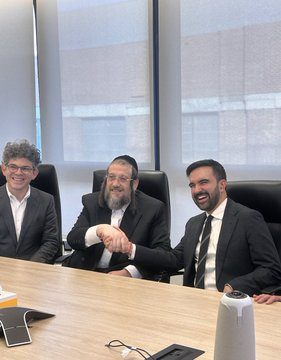
Beyond the five boroughs, Mamdani’s win carries national significance. As the first Muslim and first Indian-American mayor of New York City, his victory carries symbolic weight across America’s diverse population. It underscores the growing role of immigrant stories in public life and challenges old power structures.
At the same time, his insurgent win raises questions about the broader future of the Democratic Party and progressive politics in urban centers. Analysts note that his success may offer a blueprint for left-leaning candidates elsewhere: grassroots organizing, digital outreach, prioritized cost-of-living platforms, and the ability to mobilize younger voters.
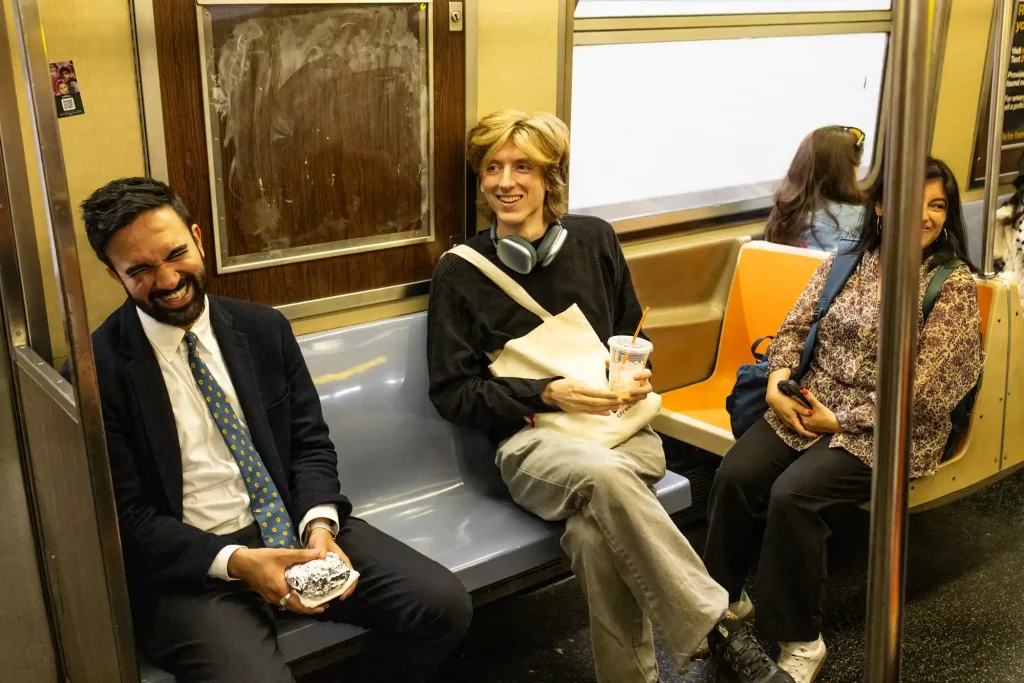
Walking through campaign rallies in Queens, there was an unmistakable vibe: hope mixed with urgency. For many longtime residents, Mamdani’s message struck a chord. One supporter told reporters that she had watched rents soar, food bills climb, transit delays multiply, and felt at the end of her rope. Mamdani offered a voice reacting to that pain — a politician who not only understood the struggle but lived through it.
In his victory speech, Mamdani spoke not just of triumph, but of responsibility. He pledged to “make government work for everyday people” and warned that “this moment isn’t just about me, it’s about all of us.” He understood that this campaign was bigger than one man — it was a movement calling for a city that housed millions of dreams, not just the fortunes of a few.
But as the confetti falls and the cameras move on, the real work begins. Mamdani now carries the weight of expectations — and with it, the scrutiny of both supporters and skeptics. Critics will watch whether his bold promises translate into budgets, programs, and infrastructure. Will he deliver affordable units at the scale he promised? Can fare-free transit be sustained? Will he maintain public-safety and policing reforms in a city still coping with complex challenges?
His critics argue that progressive campaigns often meet the hard walls of reality: budget constraints, inflation, competing priorities, and entrenched interests. Some business and real-estate groups have already voiced concerns. One poll reported that more than a quarter of New Yorkers said they’d consider leaving the city if a self-described democratic socialist took office.
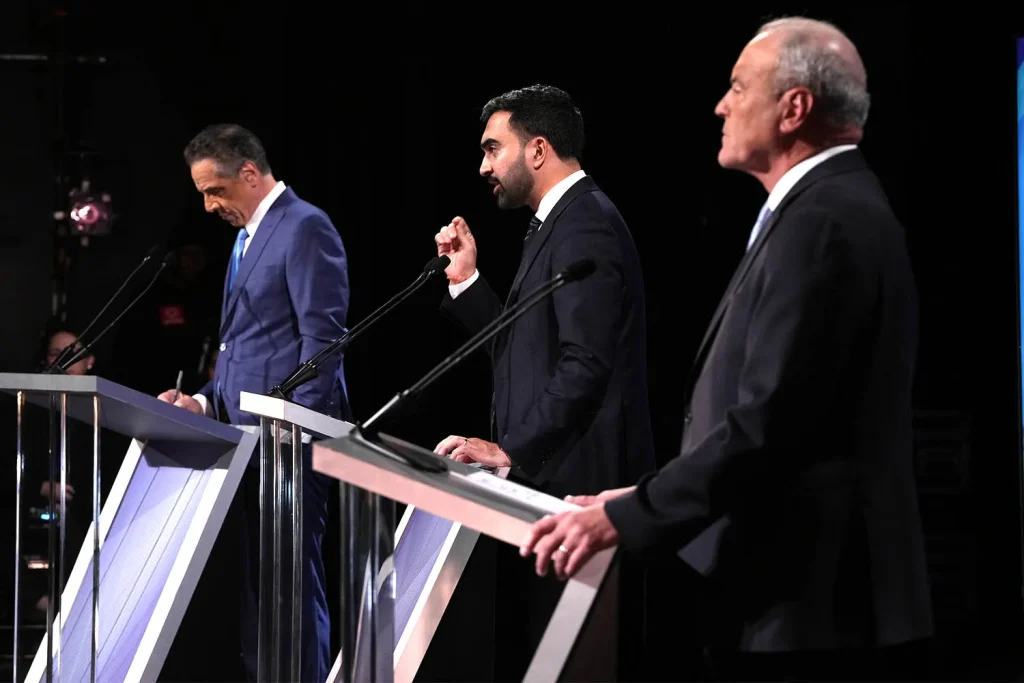
His supporters argue that this is exactly why the shift was necessary. They point to decades of stagnation in wages, housing, public transit, and inequality and say incrementalism is no longer enough. They view Mamdani’s election as a mandate for real change — a demand from voters that city hall begin to look, sound, and act like the people it serves.
In the days, weeks, and years ahead, the eyes of the nation will watch New York City closely. Every major initiative — from affordable housing starts to transit reforms, from labor negotiations to policing strategy — will serve as proof of whether this new era can live up to the aspiration. For Mamdani, the challenge will be to keep the wide base of his coalition together while governing for the many, not just the motivated activists.
The immediate months will set the tone: first budgets, first public-agency appointments, early commerce with business and labor, and New Yorkers comparing campaign promises with early delivery. If he succeeds, he potentially rewrites New York’s political narrative and leaves a lasting legacy; if he falters, the backlash could be swift and unforgiving.
One thing feels certain: this election night was a milestone. New Yorkers chose a candidate whose story is in many ways emblematic of contemporary America — immigrant roots, progressive ambition, generational shift, and the desire to reshape a city that often feels tilted toward the elite. His victory is a monument to both what is possible in democratic politics in 2025 and the scale of the task ahead.
As the sun rises on a new day in New York, the work begins in earnest. Zohran Mamdani is no longer just a candidate. He is now mayor-elect of the city that never sleeps, carrying the hopes of millions who believe it is possible to turn bold ideas into reality.
